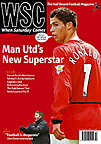 Heralded as an indicator of football’s rise when launched 12 years ago, it’s the best guide to the game’s health. Roger Titford looks at this year's Deloitte & Touche report
Heralded as an indicator of football’s rise when launched 12 years ago, it’s the best guide to the game’s health. Roger Titford looks at this year's Deloitte & Touche report
Deloitte & Touche’s annual review of football finances is now in its 12th year. The series will offer the football historian of the future a far more accurate and detailed source for the football boom-and-near-bust years than the usual run of football/business books.
For today’s reader it inevitably suffers from a time-lag of a year, this edition being focused on 2001-02 – the (only) year of ITV Digital money. It also lacks recent financial information from 23 of the 92 League clubs, including some more interesting basket cases such as Derby, Leicester, Bradford, Barnsley and Wimbledon.
Overall, the report is upbeat about our game. It concludes: “Irrespective of all the negative press and scare mongering… we are confident that professional football on a nationwide basis will survive as it has for decades.” However, the key is responsibility: “We urge clubs to set budgets and fix pay based on what is ‘known’ to be coming in and link the rest to performance.”
The hero of the story is the game’s enduring and increasing ability to generate revenue; from broadcasting sources, commercial sources (linked to exploitation of stadium facilities) and, now in only third place in financial importance, us, the match-going fans.
The villain of the piece is players’ wages. The average Premiership player earned £600,000 gross in 2001-02 – about 24 times the average wage. Only ten years ago the ratio was five times average earnings. This change is understandable – Deloitte demonstrate a strong correlation between total wage bill and league position in the Premiership and Division One, though the correlation is much weaker lower down. Players’ agents are also evaluated – the biggest agencies now have a turnover similar to, say, QPR, but are profitable. The other, more significant, drain on the English game is the net outflow of £190 million in transfer revenue to foreign clubs, over half the value of the transfer market.
The importance of the market itself has declined massively since Bosman in 1995 and no longer represents a way out of trouble for most clubs. Instead Deloitte strongly advocate performance-related pay and show an avid interest in Division Three’s salary-cap experiment. They acknowledge this goes against the philosophical grain (“we are instinctive fans of the free market”) and it is interesting to see the report touch on more philosophical questions, such as: “What is a football club for?” It would seem here there is one rule for the poor but not a comparative one for the rich. There is also some ambivalence towards the cavalier sugar-daddy chairman figure. But without him (Walker, Hayward, Whelan) and with salary-capping, what prospect would there be for change in the so-called “natural order” of clubs? Sugar daddies are OK provided they don’t ask for the sugar back, one suspects.
The report is wide-ranging and full of useful snippets such as: stadium expansions can pay for themselves in seven years, football generated an income for the Government in taxes paid of £536m (should pay for a few coppers) and that UEFA are bringing in a “club licensing scheme” in 2004-05 to restrain “irrationally exuberant” competitors.
The top five leagues in Europe are also covered in some detail, though omission of any analysis of their lower divisions is an unusual gap. The Champions League is now of such a financial size that it can be regarded as a sixth top league in its own right. The situation in Italy looks worrying in terms of declining attendances and pressure on broadcast revenue. If it continues as such, a compare and contrast exercise with the English game could offer salutary lessons.
For those more history- than accountancy-minded, it would be fascinating if Deloitte turned their honed analytical skills to an investigation of football finances in the maximum wage era. Some amnesties and a few PhD students might be required.
From WSC 200 October 2003. What was happening this month